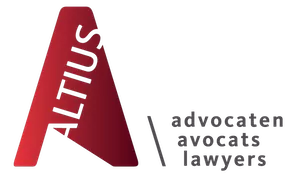Belgium is welcoming a significant development in the field of veterinary medicine law. The Act of 11 July 2023 containing various provisions on health, which entered into force on 8 September 2023, introduces changes across a wide spectrum of healthcare domains, which are encompassed in approximately 20 chapters. In this blog post, we provide an overview of the key changes related to the marketing of veterinary medicines set out in Chapters 4 and 14 of the new Law.
Background
Until now, Article 17 §3 of the Law of 28 August 1991 on the practice of veterinary medicine restricted veterinarians and pharmacies in Belgium from entering into commercial transactions with manufacturers, importers, and wholesalers of veterinary medicinal products and medical devices. Additionally, they were prohibited from receiving complimentary samples or discounts (rebates) from these suppliers. However, with the adoption in 2018 of EU Regulation 2019/6 on veterinary medicinal products ('the Regulation'), which does not include such restrictions, Belgium's legislation became at odds with Union law.
In a nutshell, the Regulation aims not only to simplify the regulatory environment to the benefit of pharmaceutical companies that develop veterinary medicinal products, but also to encourage the development of more innovative medicines, and to strengthen the functioning of the internal market for veterinary products in general.
With the Act of 5 May 2022 concerning veterinary medicinal products, Belgium intended to align its national law with the Regulation, but it failed to address the non-compliant prohibitions regarding veterinary medicine. Now, at last, Article 13 of the new Act aims to rectify this shortcoming by altering the scope of the rules governing the practice of veterinary medicine set out in Article 17 of the Act of 28 August 1991 on the practice of veterinary medicine.
Key changes to the Law on the practice of veterinary medicine
First and foremost, manufacturers, importers, and wholesalers of veterinary medicinal products now have the freedom to enter into contracts concerning the price and supply of such products with veterinarians and pharmacists.
Second, veterinarians and pharmacists are now allowed to receive veterinary medicinal products for free, provided they respect the Regulation's relevant provisions, which are: (a) the distribution of veterinary medicinal products for promotional purposes is restricted to small quantities of samples; (b) samples must bear appropriate labeling to indicate their nature; and (c) they may only be distributed directly to veterinarians or pharmacies during sponsored events or by sales representatives during their visits. As for antimicrobial veterinary medicinal products, distributing samples or conducting any other promotional activities remains strictly prohibited.
Last but not least, veterinarians and pharmacists may now receive volume-based discounts and rebates, for non-antimicrobial veterinary medicinal products. However, the Belgian legislator has left the prohibition on discounts and rebates in effect for antimicrobial veterinary medicines due to concerns related to Antimicrobial Resistance (AMR). Conversely though, the Council of State has advised in an opinion that the maintenance of this ban for antimicrobial medicines may be in conflict with the Regulation. This might give rise to future potential legal challenges to this provision.
The new law maintains the existing prohibitions of Article 17 of the Law of 28 August 1991 for veterinary medical devices, as the Regulation does not apply to them. It remains to be seen whether maintaining this distinction will pass muster from a legal viewpoint.
Additional revisions of the Law concerning veterinary medicinal products
In addition to the revisions made to the Act of 28 August 1991, certain provisions of the Act of 5 May 2022 concerning veterinary medicinal products have been subject to change:
- The law now establishes a legal basis for additional requirements concerning parallel imports, which will be implemented by Royal Decree.
- Prior to advertising non-prescription veterinary medicinal products intended for the general public, mandatory notifications must be submitted to the Federal Agency for Medicines and Health Products (FAMHP).
- A legal basis has been introduced to govern the distribution and receipt of samples, including the necessary documentation that needs to be maintained. The FAMHP has been granted oversight in this regard.
- In line with the legislation regarding human medicines, a prior visa is now required for inviting prescribing veterinarians when overnight accommodation is offered during multi-day conferences. Nevertheless, organisers could still invite these individuals even if a visa would not be granted, though the invitees would then have to cover their accommodation costs themselves.
In conclusion
The new Act containing various provisions on health of 11 July 2023 tackles Belgium's veterinary medicine legislation to ensure it complies with EU law, and it affects the relationships between veterinarians, pharmacists, and pharmaceutical companies. Most notably, it permits veterinarians to engage in commercial transactions, receive complimentary samples, and access volume-based discounts for veterinary medicinal products, although with certain restrictions.
Additionally, the law introduces requirements related to parallel imports, mandatory publicity notifications, sample distribution, prior visas, and specifies the control powers of the Federal Agency for Medicines and Health Products (FAMHP).
The content of this article is intended to provide a general guide to the subject matter. Specialist advice should be sought about your specific circumstances.


